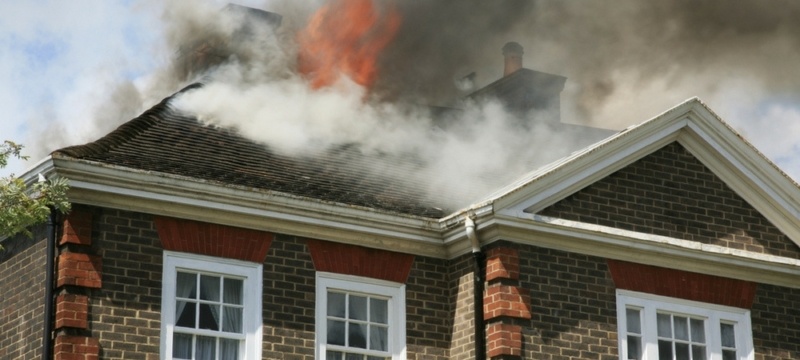You may think a house fire will never happen to you. But what if it does? Are you prepared?
Figuring out what to do after a home fire can be a very stressful and overwhelming process, and it can be hard to decide what to do first. With a little help from your insurance agent, though, you may be able to settle your claim more quickly and get your life back to normal.
Here are the six things you should do after a home fire.
1. Call your insurance agent immediately. You will be getting calls at all hours of the day from public adjusters and contractors who will try to offer you a deal on putting your house back together. These calls can create a lot of stress and confusion. I suggest you speak to no one but your agent to discuss your options at this point in the process.
2. Ask about restoration companies that can help with cleaning up soot, boarding up windows, and other construction. Immediately after a fire, especially if it is a minor one, you’ll need to clean up any soot or water damage. It is important to hire a reputable service to deal with these issues. Ask your agent or insurance adjuster to recommend a few different companies. They deal with these situations more often than you do and likely know of some businesses that fit your needs. Many of these restoration companies have connections to good contractors, engineers, and architects, as well.
3. Separate damaged property from undamaged property. The insurance company will need a detailed inventory list from you after they inspect the loss. Separating your damaged property from your undamaged property will make it easier for you to make a list of your damaged items. This list needs to include the date you purchased each item, the brand name, the price you paid, and the serial number, model, or description of each item. If the item was a gift, be sure to indicate that as well.
It’s a good idea to submit your receipts with this inventory list. If the receipts were destroyed in the fire, or you didn’t keep any receipts, request copies of prior bank statements. This can make obtaining duplicate receipts easier. Keep in mind that photos of any damaged items are always helpful if receipts are not available.
4. Save undamaged property from further destruction. Any items that are not damaged should be put in a safe place, even if it means putting them in storage. Insurance adjusters are typically fair when it comes to adding additional costs for storage.
5. Cooperate fully with the insurance company’s investigation. When a fire claim is reported to an insurance company, it is given top priority. Usually the adjusters come out to see the loss within 24 to 48 hours. To help settle your claim in a timely manner and to your satisfaction, be sure you are available and on time for all meetings, that you return calls promptly, that any requested paperwork is completed as quickly as possible, and that you contact the company or your agent immediately with any questions.
6. Find somewhere to stay if you can’t live in your home. Most homeowner’s policies include “Loss of Use or Loss of Rents” coverage, which will pay for the food, clothing, and shelter that you and your family may need for a specified period of time. Keep in mind that your policy will pay for “like kind and quality” living arrangements. You may want to save the Ritz for a special occasion and instead stay in a more reasonably priced hotel.
What to do before disaster strikes
• Review your homeowner’s policy to be sure you have replacement cost coverage, loss of use coverage, and adequate dwelling coverage. The last thing you want to hear after a fire is that you were underinsured.
• Save all your receipts and put them in a metal fireproof box or in a storage facility off the premises, such as a safety deposit box. Better yet, scan the receipts and save them to a computer file. Taking a video of your entire home and the possessions within it is the next best thing to receipts. This will show the insurance company what sort of lifestyle you had prior to the claim.
• Be sure to have smoke detectors in every room of your home to ensure that everyone gets out of the house or apartment safely in the event of a fire. Have exit ladders and fire extinguishers handy, and know how to use them.
• Discuss escape strategies and plans with your family prior to a fire, and consider a fire drill to help ensure everyone’s safety.
Heidi Petschauer Fox graduated from St. John’s University in Queens, N.Y., in 1983 with a B.S. in management. She joined her late father’s firm, Petschauer Insurance, in 1982, became principal in 1995, and now shares ownership with her partner and cousin, Erwin Petschauer. She received her Certified Insurance Counselor (CIC) designation in 1997. She currently facilitates the professional and creative development of the entire Petschauer team and manages the personal lines and social media departments.






